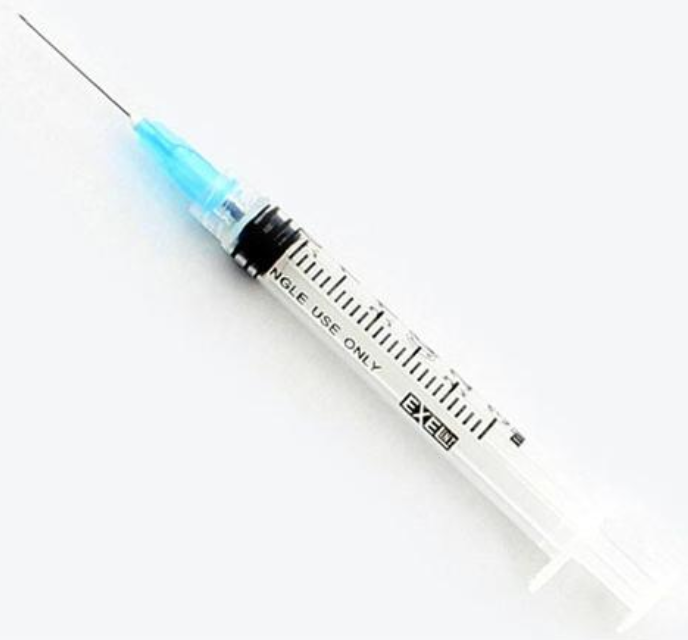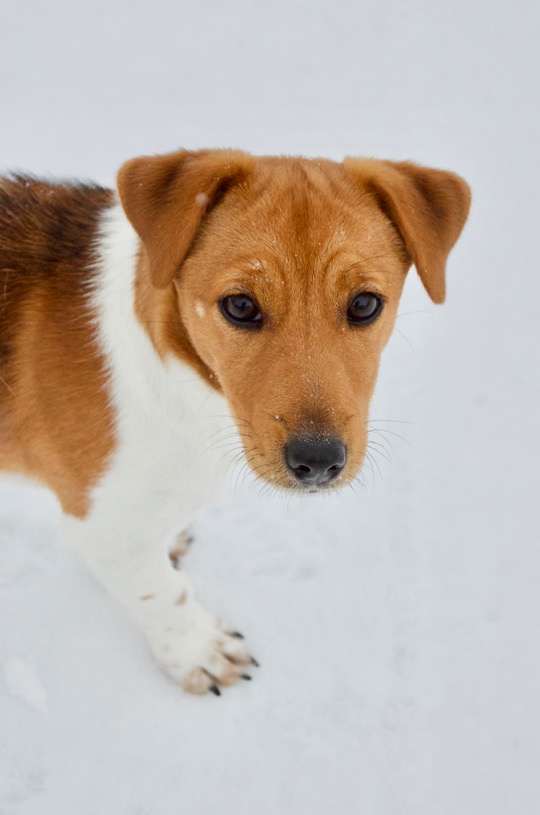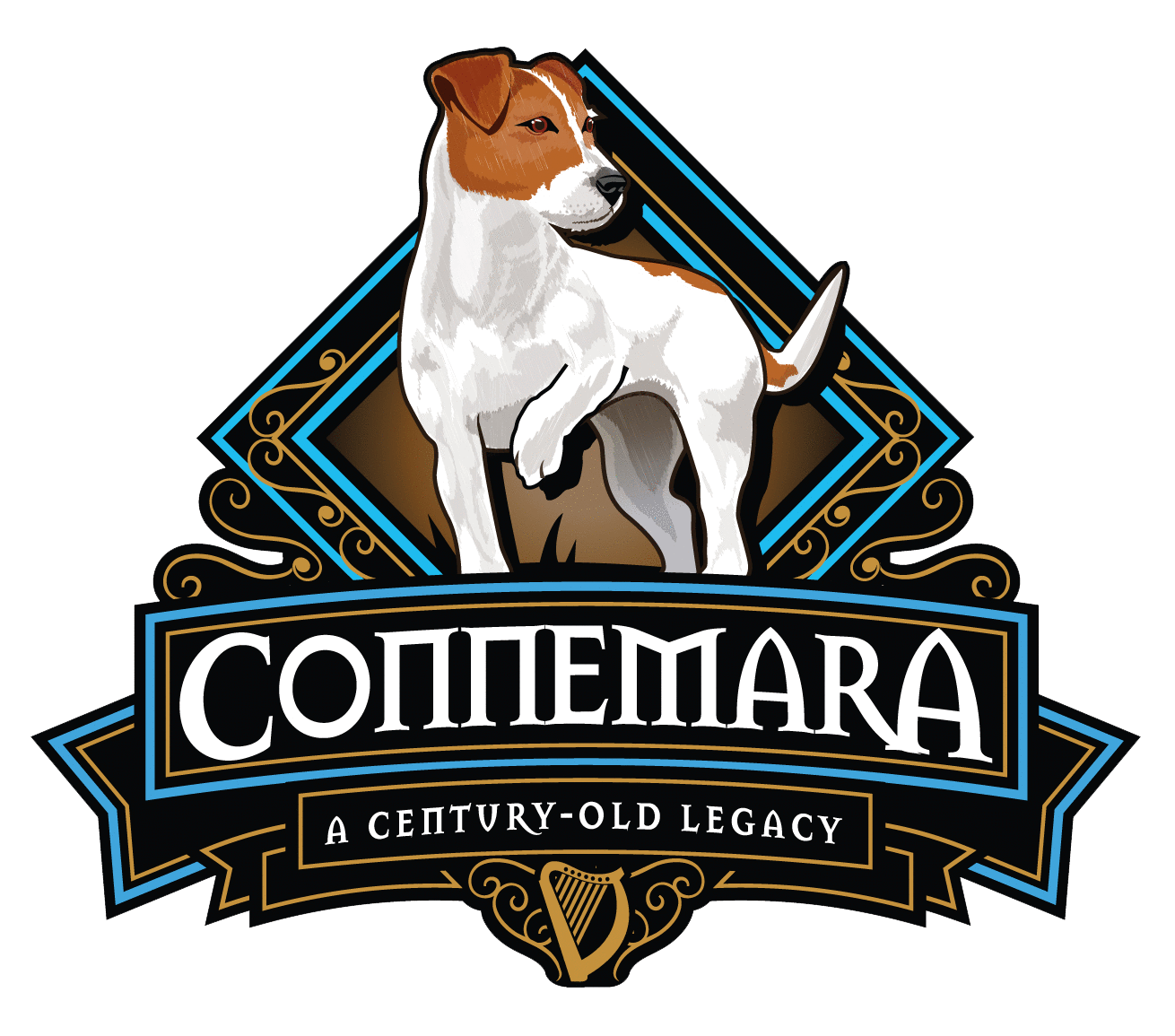
We Recommend Core Vaccines Only:
Be sure you are EDUCATED - Before your puppy is MEDICATED. Do your research and read up on the hazards and weigh your options carefully...
Vaccinations for puppies are a controversial subject in veterinary science as well as for responsible breeders. There is clearly no best answer or practice. Vaccinating practices vary and involve the following factors:
- Your puppy's environment.
- Your puppy's age when he received his first vaccine.
- The interval between vaccines.
- The kinds and types of vaccines best for your area of the country.
In addition, the veterinarian's and breeders training, beliefs and opinions also play into this. The first point to consider should be safety. Vaccines can also be harmful and have lasting negative consequences... So we should be vaccinating because the advantages outweigh the risks.

HOW VACCINES WORK:
A vaccination stimulates a dog's immune system to protect against disease. When the antigen or infectious agent enters the dog's body, it is recognized as foreign and antibodies are produced to destroy it. Even though the invader is gone, the cells that manufactured the antibodies "remember" it and will respond quickly the next time the same agent is confronted.
After years of raising jack russell terrierpuppies and seeing case-after-case of vaccine related issues, we at Connemara Terrier now embrace a more natural approach to the wellness of our dogs - When and where we feel best. We are on a much more conservative schedule in regard to vaccinations, and here's why:
Puppies receive antibodies through their mothers milk. This natural protection can stay with the puppy for 8-14 weeks. If a puppy is vaccinated before eight (8) weeks of age, the natural maternal immunity will neutralize the vaccine and little or no protection will be produced. Vaccination at 6 weeks will, in fact, delay the timing of the first highly effective vaccine. Vaccinations given 2 weeks apart suppress rather than stimulate the immune system.
According to some more recent, updated practices, a series of vaccinations should be given starting no earlier than nine (9) weeks and then four (4) weeks apart up to sixteen (16) weeks of age - depending upon when initial vaccine was given. Another vaccination given one year after initial vaccines (at 1 year 4 months) often will provide a lifetime of immunity.
HELPFUL OR HARMFUL?
Many well meaning pet owners and breeders feel if they give vaccinations starting early at 4-6 weeks and on a 2 week schedule, they are protecting their pups in a responsible manner. Unfortunately what they don't realize is that they may very well be harming the animal instead.
WHAT WE VACCINATE OUR PUPPIES FOR:
We support a "CORE vaccine" schedule... This means we recommend CORE VACCINES ONLY. We will ask that you wait until your puppy is 9-10 weeks of age before giving the first vaccines and then repeat once more four weeks later. We will provide you a specific written schedule on what is recommended by Dr. W. Jean Dodds, a leading authority on vaccines.
We worm our pups with Pyrantel Pamoate at 2, 4 and 8 weeks of age. At 6 weeks, we also do one worming with SAFE-GUARD or PANACUR. We also give ALBON x 3 days as a prophylactic against Coccidosis.
Talk with your veterinarian about a safe heartworm preventative. As well, read more about it here first: Interesting Information on Heartworm Preventatives.
Lyme Disease vaccine - There is no evidence at this time that if treated, infection of Lyme leads to any significant chronic disease problem in dogs or that infected dogs are public health risks. Vaccine reactions occur occasionally and may outweigh health benefits. The vaccine also interferes with interpretation of titers possibly for years after vaccination. In other words, after having received the vaccine, your pup can test positive to the disease when he/she never really had it to begin with!
Coronavirus vaccine - Canine Corona Virus is only a disease of puppies. It is rare, self limiting and dogs get well in 3 days without treatment. Usually, it is not an adult dog illness.
Bordetella (kennel cough) vaccine - Used in kennel situations where a problem exists. You may be required to use this vaccine if you plan to board your dog within the following 6 month period or if you routinely use a "Doggie Daycare".
Leptospirosis vaccines - Only found to be partially effective, short lived and not to mention it can cause severe reactions and lasting complications in puppies. We have seen this vaccine cause problems in our puppies in the past. As well, Lepto vaccine is immuno-supressive to puppies less than 16 weeks. Therefore, giving the Lepto vaccine to your Connemara puppy/dog will usually void our health guarantee. We will respect your decision, but we can not be held responsible for it. *We will make exception to this rule: If there is a CDC documented epidemic in your area and you agree to a vaccine/titer schedule. Please ask about details.
We have shared our opinion, Dr. Dodds, the AAHA's (American Animal Hospital Association) and directed you to a few interesting websites as well. Consult your Vet too and then decide upon what you feel makes the most sense and what is best for your puppy.
There probably isn't a more controversial subject right now than vaccine protocols for dogs. The Canine Health Foundation is in the middle of a several year study on canine vaccines. Even when their research is done, there still may be questions on the right way to vaccinate.
We included this page in order to pose a few thought provoking questions. ...To cause you to ask your vet what they are giving your puppy and why. All we are really saying is please be reasonable; Think about what you are giving your pet and make sure the benefits outweigh the risks. Please don't let anyone scare you into vaccinating aggressively if it is not necessary.
WE FOLLOW DR. DODDS VACCINE RECOMMENDATIONS!
Dr. Jean Dodds – Dog Vaccine Protocol
The following vaccine protocol is offered for those dogs where minimal vaccinations are advisable or desirable. The schedule is one I recommend and should not be interpreted to mean that other protocols recommended by a veterinarian would be less satisfactory. It’s a matter of professional judgment and choice.
9 – 10 weeks of age Distemper + Parvovirus, MLV e.g. Merck Nobivac (Intervet Progard) Puppy DPV
14 – 15 weeks of age Distemper + Parvovirus, MLV
18 weeks of age Parvovirus only, MLV Note: New research states that last puppy parvovirus vaccine should be at 18 weeks old.
20 weeks or older, if allowable by law Rabies – give 3-4 weeks apart from other vaccines Mercury-free (thimerosol-free, TF)
1 year old Distemper + Parvovirus, MLV This is an optional booster or titer. If the client intends not to booster after this optional booster or intends to retest titers in another three years, this optional booster at puberty is wise.
1 year old Rabies – give 3-4 weeks apart from other vaccines 3-year product if allowable by law; mercury-free (TF)
Perform vaccine antibody titers for distemper and parvovirus every three years thereafter, or more often, if desired. Vaccinate for rabies virus according to the law, except where circumstances indicate that a written waiver needs to be obtained from the primary care veterinarian. In that case, a rabies antibody titer can also be performed to accompany the waiver request. Visit The Rabies Challenge Fund for more information.
W. Jean Dodds, DVM Hemopet / NutriScan 11561 Salinaz Avenue Garden Grove, CA 92843
Conclusion - More is not always better
Our guarantee will not cover anything relating to short or long term complications due to vaccines given. This is a personal choice you will be faced to make on your own, and as well, be held responsible for. We encourage you to be a strong advocate for your new puppy concerning unnecessary vaccines. Please familiarize yourself with Dr. W. Jean Dodds latest vaccine protocols.

"Molly" loves the outdoors! What a sight. Hiking in New Hampshire is the best! Most Jack Russells love to get outside and go hiking.

Raven. While born in Maine to the cold winters, she now winters in Florida and lives in New york.

"Libby" keeps warm all year long in Florida. She now has a baby Connemara jack russell brother, CJ. They have become great pals!
 Connemara Jack Russell Terriers
Connemara Jack Russell Terriers